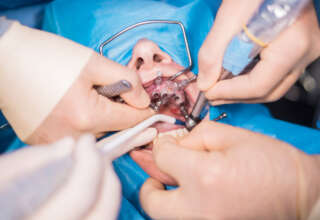
Workplaces like factories, construction sites, warehouses, and commercial kitchens pose numerous risks that lead to accidents and injuries. Most incidents are prevented through proper safety culture, equipment usage, training, and emergency preparedness. It is possible to turn a workplace into a sanctuary protecting livelihoods instead of threatening them.
Cultivating safety culture
A workplace focused solely on maximizing productivity at the cost of safety invites disasters. It is vital to foster an ethical culture emphasizing safety first through.
- Strong safety policies ensure equipment, training, and performance metrics align with accident prevention. Companies must invest in safety as an indicator of respect for human capital.
- Incentives encourage workers to speak up about unsafe conditions without fear of reprisal. Issues raised mutually must be addressed sincerely instead of suppressed.
- Regular training and demonstrations on hazard recognition, safe operational procedures, proper gear usage, and maintenance to keep knowledge current. Quick refreshers before each shift help too.
- Strict avoidance of impaired, distracted, or careless working. To buy co codamol UK, set and enforce policies for severe pain testing.
- Safety is incorporated into quality supervision, performance management, and leadership culture, making it integral to all decision-making.
Equipment and workspace safety
Industrial machinery, tools, and work facilities themselves must be designed, maintained, and used keeping worker safety in mind.
- Purchase of certified safe gear compliant with guards, controls, sensors, and ergonomic designs to prevent issues like crushing injuries and repetitive stress respectively. Regular upkeep is vital too.
- Installation of ventilation, cooling, sound dampening, sanitation, and other infrastructure facilities to ensure workplace ambiance does not directly or indirectly impact health and safety.
- Implementation of exhaust mechanisms, point-of-operation sensors, proper insulation, and other engineering controls to mitigate risks like emissions, electrocution, etc.
- Creation of clean, clearly marked, and obstacle-free floors and passages with adequate anti-slip and stability-enhancing components to avoid trips and falls.
- Standard safety signages near hazards, emergency exits/equipment, and restricted areas and easily understood operating instructions on machinery in predominant local languages.
Such focus makes for an infrastructure minimizing safety incidents. Still, rigorous usage training and supervision are vital. here is more information about this site.
Safe operational habits
Operating machinery without training or permits, disabling safety features for convenience, ignoring warning indicators, improper loading, and unauthorized modifications leading to breakdowns and user injury. Neglecting personal protective equipment like goggles, insulating gloves, safety harnesses, and hard hats could prevent grave outcomes in case of issues like emissions and falling objects. Poor housekeeping with obstructed floor spaces, slipping hazards ignored, and emergency equipment blocked. Distraction and carelessness while driving forklifts, carrying heavy loads jointly, or handling dangerous chemicals.
Being prepared for emergencies
Despite all precautions accidents occur. Preparing contingency plans for events such as fires, equipment failures with persons trapped, and chemical spills. Displayed helpline information, equipment controls guides, and protocols for accident site isolation, and external agency reporting, to facilitate swift qualified response. Regular joint drills between internal response teams like safety officers, medical attendants, and fire wardens and external entities like fire departments. Learnings to further hone strategies. Making workplaces safer protects livelihoods. It takes a holistic culture of caution, wise investment priorities, and safety-first vigilance from all involved daily. The rewards in lives saved and futures preserved are worth the care.














